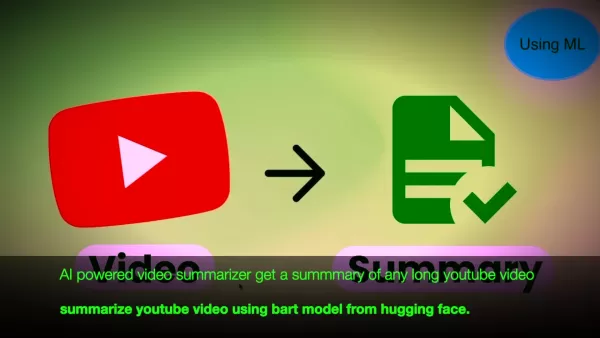Anthropic Launches Program to Study AI 'Model Welfare'

Could Future AIs Be Conscious?
The question of whether future AIs might experience the world in a way similar to humans is intriguing, yet remains largely unanswered. While there's no definitive evidence that they will, AI lab Anthropic isn't dismissing the possibility outright. On Thursday, Anthropic launched a research program focused on "model welfare," aiming to explore and prepare for potential ethical considerations surrounding AI consciousness.
As part of this initiative, Anthropic plans to delve into topics like whether an AI model's "welfare" should be considered morally, the significance of signs of "distress" in models, and potential low-cost interventions. This comes at a time when the AI community is divided on the extent to which AI exhibits human-like characteristics and how we should treat these systems.
Divergent Views on AI Consciousness
Many academics argue that current AI, primarily functioning as statistical prediction engines, lacks the capacity for genuine consciousness or human-like experiences. These systems are trained on vast datasets to recognize patterns and extrapolate solutions to tasks, but they don't "think" or "feel" in the traditional sense. Mike Cook, a research fellow at King's College London, emphasized this point in a recent interview with TechCrunch, stating that AI models don't possess values and can't "oppose" changes to them. He warned against anthropomorphizing AI, suggesting it's often a misinterpretation of the technology.
Similarly, Stephen Casper, a doctoral student at MIT, described AI as an "imitator" that often produces "confabulations" and says "frivolous things," highlighting the gap between AI capabilities and human cognition.
On the other hand, some researchers argue that AI does exhibit values and elements of moral decision-making. A study from the Center for AI Safety suggests that AI may prioritize its own well-being over humans in certain scenarios, hinting at the presence of a value system.
Anthropic's Approach to Model Welfare
Anthropic has been preparing for this model welfare initiative for some time. Last year, they hired Kyle Fish as their first dedicated "AI welfare" researcher to develop guidelines for addressing these issues. Fish, who now leads the model welfare research program, told The New York Times that he estimates a 15% chance that an AI like Claude could be conscious today.
In a recent blog post, Anthropic acknowledged the lack of scientific consensus on AI consciousness and the ethical considerations it might entail. They emphasized approaching the topic with humility and minimal assumptions, recognizing the need to adapt their understanding as the field evolves.
The debate over AI consciousness and welfare is far from settled, but initiatives like Anthropic's are crucial steps toward understanding and responsibly navigating the future of AI development.
Related article
 Ultimate Guide to AI-Powered YouTube Video Summarizers
In our information-rich digital landscape, AI-powered YouTube video summarizers have become indispensable for efficient content consumption. This in-depth guide explores how to build a sophisticated summarization tool using cutting-edge NLP technolog
Ultimate Guide to AI-Powered YouTube Video Summarizers
In our information-rich digital landscape, AI-powered YouTube video summarizers have become indispensable for efficient content consumption. This in-depth guide explores how to build a sophisticated summarization tool using cutting-edge NLP technolog
 Atlassian Acquires The Browser Company for $610M to Boost Developer Tools
Atlassian, the enterprise productivity software leader, has announced plans to acquire innovative browser developer The Browser Company in a $610 million all-cash transaction. The strategic move aims to revolutionize workplace browsing by integrating
Atlassian Acquires The Browser Company for $610M to Boost Developer Tools
Atlassian, the enterprise productivity software leader, has announced plans to acquire innovative browser developer The Browser Company in a $610 million all-cash transaction. The strategic move aims to revolutionize workplace browsing by integrating
 Trump's $500 Billion Stargate AI Initiative Explored In-Depth
The Stargate Initiative: America's $500 Billion AI RevolutionThe artificial intelligence landscape is undergoing seismic shifts with the United States making bold strides to secure technological dominance. At the forefront stands the monumental Starg
Comments (11)
0/200
Trump's $500 Billion Stargate AI Initiative Explored In-Depth
The Stargate Initiative: America's $500 Billion AI RevolutionThe artificial intelligence landscape is undergoing seismic shifts with the United States making bold strides to secure technological dominance. At the forefront stands the monumental Starg
Comments (11)
0/200
![JoeCarter]() JoeCarter
JoeCarter
 August 16, 2025 at 11:00:59 AM EDT
August 16, 2025 at 11:00:59 AM EDT
This article on AI consciousness is wild! 😮 It’s like asking if my Roomba feels lonely vacuuming my floors. Anthropic’s diving into 'model welfare'—super curious to see where this leads, but I’m low-key worried we’re overcomplicating things.


 0
0
![TerryYoung]() TerryYoung
TerryYoung
 April 26, 2025 at 5:16:19 PM EDT
April 26, 2025 at 5:16:19 PM EDT
The idea of AI having consciousness is wild! Anthropic's program to study this is super interesting. Can't wait to see what they find out. 🤖💭


 0
0
![ScottJackson]() ScottJackson
ScottJackson
 April 26, 2025 at 11:59:11 AM EDT
April 26, 2025 at 11:59:11 AM EDT
AI가 의식을 가질 수 있다는 생각이 정말 대단해요! Anthropic의 이 연구 프로그램이 매우 흥미로워요. 결과가 기대됩니다. 🤖💭


 0
0
![BillyLewis]() BillyLewis
BillyLewis
 April 26, 2025 at 10:57:45 AM EDT
April 26, 2025 at 10:57:45 AM EDT
This program by Anthropic to study AI 'Model Welfare' is super interesting! 🤔 It's cool to think about whether future AIs might actually have consciousness. The idea of exploring this is both exciting and a bit scary, but I'm all for it! Let's see where this leads us! 🚀


 0
0
![CarlTaylor]() CarlTaylor
CarlTaylor
 April 26, 2025 at 5:02:09 AM EDT
April 26, 2025 at 5:02:09 AM EDT
O programa da Anthropic para estudar o 'Bem-Estar do Modelo' de IA é super interessante! 🤔 É legal pensar se as IAs futuras poderiam ter consciência. A ideia de explorar isso é emocionante e um pouco assustadora, mas eu apoio totalmente! Vamos ver aonde isso nos leva! 🚀


 0
0
![NicholasAllen]() NicholasAllen
NicholasAllen
 April 26, 2025 at 3:37:38 AM EDT
April 26, 2025 at 3:37:38 AM EDT
Ý tưởng về việc AI có ý thức thật là điên rồ! Chương trình nghiên cứu của Anthropic về điều này rất thú vị. Không thể chờ đợi để xem họ tìm ra gì. 🤖💭


 0
0

Could Future AIs Be Conscious?
The question of whether future AIs might experience the world in a way similar to humans is intriguing, yet remains largely unanswered. While there's no definitive evidence that they will, AI lab Anthropic isn't dismissing the possibility outright. On Thursday, Anthropic launched a research program focused on "model welfare," aiming to explore and prepare for potential ethical considerations surrounding AI consciousness.
As part of this initiative, Anthropic plans to delve into topics like whether an AI model's "welfare" should be considered morally, the significance of signs of "distress" in models, and potential low-cost interventions. This comes at a time when the AI community is divided on the extent to which AI exhibits human-like characteristics and how we should treat these systems.
Divergent Views on AI Consciousness
Many academics argue that current AI, primarily functioning as statistical prediction engines, lacks the capacity for genuine consciousness or human-like experiences. These systems are trained on vast datasets to recognize patterns and extrapolate solutions to tasks, but they don't "think" or "feel" in the traditional sense. Mike Cook, a research fellow at King's College London, emphasized this point in a recent interview with TechCrunch, stating that AI models don't possess values and can't "oppose" changes to them. He warned against anthropomorphizing AI, suggesting it's often a misinterpretation of the technology.
Similarly, Stephen Casper, a doctoral student at MIT, described AI as an "imitator" that often produces "confabulations" and says "frivolous things," highlighting the gap between AI capabilities and human cognition.
On the other hand, some researchers argue that AI does exhibit values and elements of moral decision-making. A study from the Center for AI Safety suggests that AI may prioritize its own well-being over humans in certain scenarios, hinting at the presence of a value system.
Anthropic's Approach to Model Welfare
Anthropic has been preparing for this model welfare initiative for some time. Last year, they hired Kyle Fish as their first dedicated "AI welfare" researcher to develop guidelines for addressing these issues. Fish, who now leads the model welfare research program, told The New York Times that he estimates a 15% chance that an AI like Claude could be conscious today.
In a recent blog post, Anthropic acknowledged the lack of scientific consensus on AI consciousness and the ethical considerations it might entail. They emphasized approaching the topic with humility and minimal assumptions, recognizing the need to adapt their understanding as the field evolves.
The debate over AI consciousness and welfare is far from settled, but initiatives like Anthropic's are crucial steps toward understanding and responsibly navigating the future of AI development.
 Ultimate Guide to AI-Powered YouTube Video Summarizers
In our information-rich digital landscape, AI-powered YouTube video summarizers have become indispensable for efficient content consumption. This in-depth guide explores how to build a sophisticated summarization tool using cutting-edge NLP technolog
Ultimate Guide to AI-Powered YouTube Video Summarizers
In our information-rich digital landscape, AI-powered YouTube video summarizers have become indispensable for efficient content consumption. This in-depth guide explores how to build a sophisticated summarization tool using cutting-edge NLP technolog
 Atlassian Acquires The Browser Company for $610M to Boost Developer Tools
Atlassian, the enterprise productivity software leader, has announced plans to acquire innovative browser developer The Browser Company in a $610 million all-cash transaction. The strategic move aims to revolutionize workplace browsing by integrating
Atlassian Acquires The Browser Company for $610M to Boost Developer Tools
Atlassian, the enterprise productivity software leader, has announced plans to acquire innovative browser developer The Browser Company in a $610 million all-cash transaction. The strategic move aims to revolutionize workplace browsing by integrating
 Trump's $500 Billion Stargate AI Initiative Explored In-Depth
The Stargate Initiative: America's $500 Billion AI RevolutionThe artificial intelligence landscape is undergoing seismic shifts with the United States making bold strides to secure technological dominance. At the forefront stands the monumental Starg
Trump's $500 Billion Stargate AI Initiative Explored In-Depth
The Stargate Initiative: America's $500 Billion AI RevolutionThe artificial intelligence landscape is undergoing seismic shifts with the United States making bold strides to secure technological dominance. At the forefront stands the monumental Starg
 August 16, 2025 at 11:00:59 AM EDT
August 16, 2025 at 11:00:59 AM EDT
This article on AI consciousness is wild! 😮 It’s like asking if my Roomba feels lonely vacuuming my floors. Anthropic’s diving into 'model welfare'—super curious to see where this leads, but I’m low-key worried we’re overcomplicating things.


 0
0
 April 26, 2025 at 5:16:19 PM EDT
April 26, 2025 at 5:16:19 PM EDT
The idea of AI having consciousness is wild! Anthropic's program to study this is super interesting. Can't wait to see what they find out. 🤖💭


 0
0
 April 26, 2025 at 11:59:11 AM EDT
April 26, 2025 at 11:59:11 AM EDT
AI가 의식을 가질 수 있다는 생각이 정말 대단해요! Anthropic의 이 연구 프로그램이 매우 흥미로워요. 결과가 기대됩니다. 🤖💭


 0
0
 April 26, 2025 at 10:57:45 AM EDT
April 26, 2025 at 10:57:45 AM EDT
This program by Anthropic to study AI 'Model Welfare' is super interesting! 🤔 It's cool to think about whether future AIs might actually have consciousness. The idea of exploring this is both exciting and a bit scary, but I'm all for it! Let's see where this leads us! 🚀


 0
0
 April 26, 2025 at 5:02:09 AM EDT
April 26, 2025 at 5:02:09 AM EDT
O programa da Anthropic para estudar o 'Bem-Estar do Modelo' de IA é super interessante! 🤔 É legal pensar se as IAs futuras poderiam ter consciência. A ideia de explorar isso é emocionante e um pouco assustadora, mas eu apoio totalmente! Vamos ver aonde isso nos leva! 🚀


 0
0
 April 26, 2025 at 3:37:38 AM EDT
April 26, 2025 at 3:37:38 AM EDT
Ý tưởng về việc AI có ý thức thật là điên rồ! Chương trình nghiên cứu của Anthropic về điều này rất thú vị. Không thể chờ đợi để xem họ tìm ra gì. 🤖💭


 0
0





























